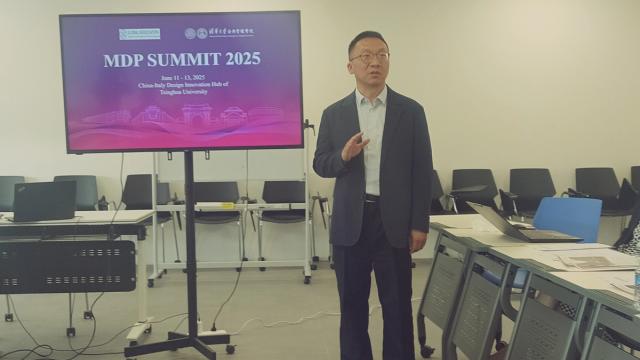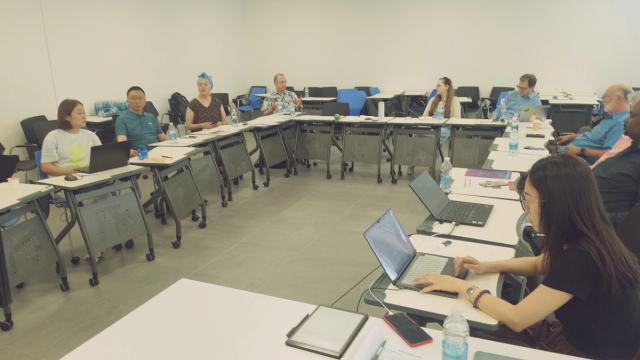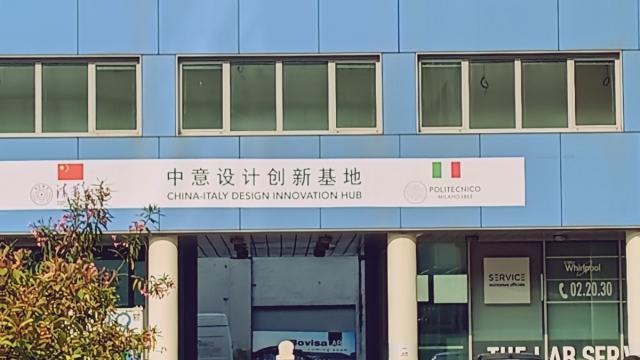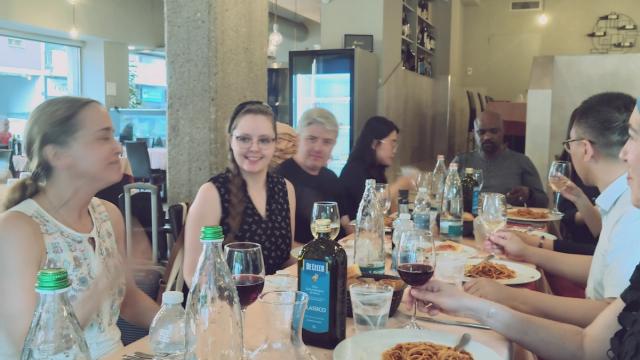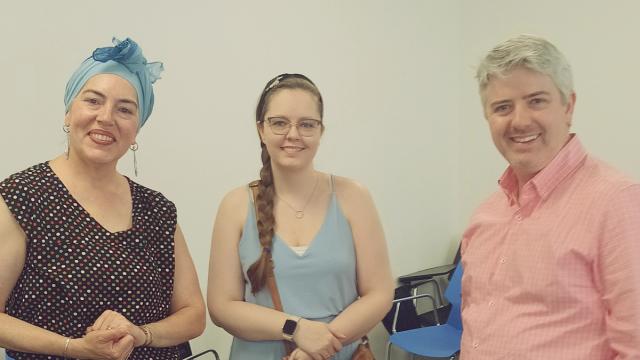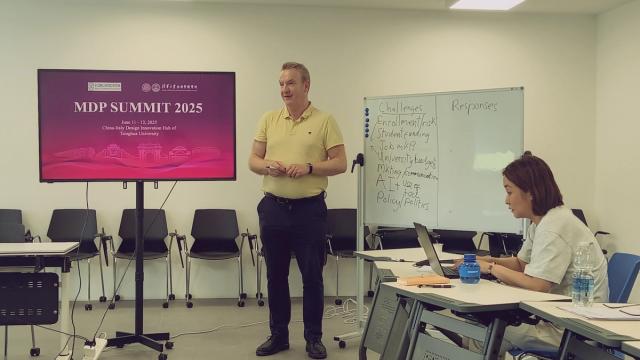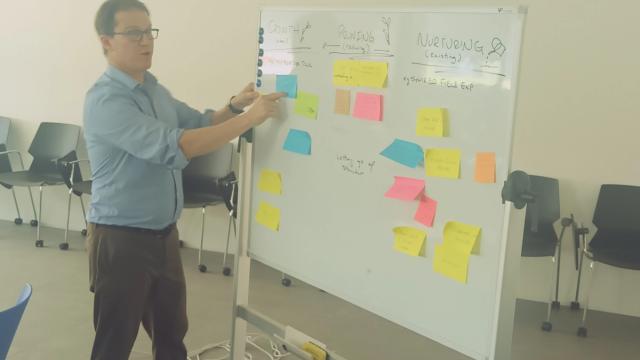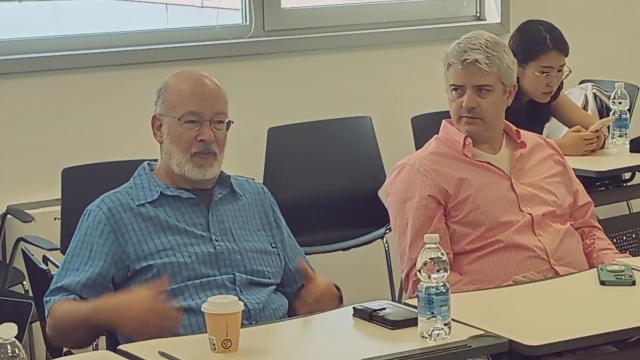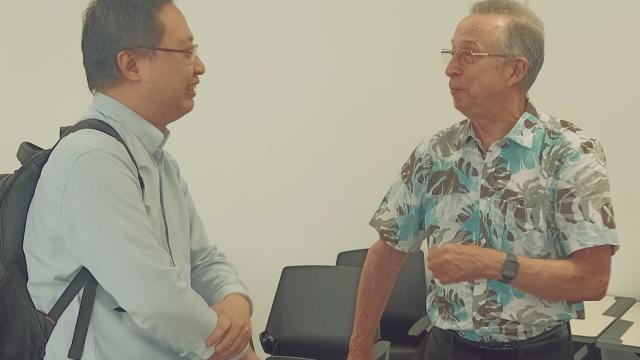The MDP Summit 2025: Shaping the Future
On June 11-13, 2025, the 17th Annual Master’s in Development Practice (MDP) Summit brought together a global community of educators, students, and development professionals. Over three intensive days, participants exchanged insights, shared best practices, and explored innovative approaches shaping the future of sustainable development education. As the flagship gathering of the Global Association of MDP programs, the Summit served as a vital forum for collaboration, reflection, and forward-looking dialogue.
On Tsinghua University’s international campus in Milan, Italy, 16 participants representing various MDP programs were warmly welcomed by the Summit’s hosts, including representatives from the MDP Secretariat and Chengzhi Yin from Tsinghua University, Co-Chair of the MDP Academic Steering Committee.
Shaping Priorities for 2025-2026
Throughout the Summit, under the guidance and facilitation of the directors from Trinity College Dublin, Ireland, and the University of Florida, USA, several focus areas for the upcoming year (2025-2026) began to take shape:
- Launching the new MDP book at various events locally, regionally, and internationally, beginning in September 2025
- Exploring the use of artificial intelligence within the MDP programs
- Activating the MDP Student Working Paper Series
- Organizing the MDP Student and Alumni Advisory Council Global Challenge 2.0
- Updating and enhancing the MDP website
- Creating social media spotlights featuring MDP students, alumni, and faculty members from campuses around the world
- Prospecting for new partners and funding opportunities
- Integrating Professor Jeffrey D. Sachs’ “Ages of Globalization” lectures into an updated version of the Global Classroom course
- Continuing to share updates and news about the MDP network widely through the monthly MDP newsletter
- Continuing to grow the number of MDP programs by actively reaching out and recruiting new partners, and
- Surveying the MDP programs on their 2024-2025 enrollment numbers
The MDP Community’s Initiatives
Building on these priorities, the Summit also highlighted several innovative initiatives and collaborative efforts aimed at strengthening the MDP community and the advancing Sustainable Development Goals.
Missouri State University, USA, a new member of the MDP network, participated for the first time. A representative shared plans for their existing program, which will soon be relaunched under Global Association membership. Notably, its program will be the first within the network to focus on sustainable tourism.
The Milken Innovation Center, an MDP partner, also participated in the MDP Summit. The Center offers a free online course on Impact investment, through which students can learn to develop and implement concept plans.
The Summit featured the upcoming MDP book “Transforming Education for Sustainable Development: Global Perspectives from Classroom to Practice.” This Routledge publication comprises nine chapters, with an acknowledgment by Mary Robinson, the former President of Ireland, and a supporting foreword by Jeffrey D. Sachs. The book was authored by more than 30 contributors, including MDP faculty, students, and alumni from around the world. It exemplifies a collaborative effort, bringing together many members of the Global Association to showcase the work being done across programs.
Trinity College Dublin led an engaging discussion on the topic of MDP fieldwork. Participants spent considerable time exploring the various models employed to fulfill the program’s core requirement: three months of field experience. These models ranged from traditional, immersive fieldwork to hybrid approaches resembling consultancy projects, as well as shorter travel-based experiences. Some students have worked with multilateral organizations on issues such as agriculture, while others have engaged with local nonprofit organizations in their home countries, addressing issues like homelessness, poverty, and immigration.
Additionally, the University of Minnesota, USA, led a conversation on innovative responses to challenging times. In this context, they shared that their MDP program has achieved the STEM (Science, Technology, Engineering, and Mathematics) classification. This recognition offers several benefits, including positioning the MDP not only as a degree in sustainable development but also as a program that enhances STEM training. Columbia University also shared that it holds a similar STEM classification, highlighting the growing trend among MDP programs to integrate STEM elements into their curricula.
Championing Accessibility
Providing access to students from underrepresented backgrounds in MDP programs was another key theme discussed during the Summit. Tsinghua University in China, the University of Pretoria in South Africa, and the University of Los Andes in Colombia each presented on their efforts to broaden participation among diverse student populations, such as those of African heritage or Indigenous backgrounds.
For example, the University of Pretoria shared how newly received scholarship funding from the Leopold Bachmann Foundation will help increase opportunities for financially strained students who might not otherwise be able to attend. Similarly, grantees of the Leopold Bachmann Foundation at the University of Los Andes described their ongoing efforts over several years to recruit students from underrepresented regions within Colombia, particularly Afro-Colombian and Indigenous communities. Tsinghua University, which has recruited students globally for many years, plans to continue its efforts. The university views its MDP program as a platform for offering executive training in China to public servants from developing countries, aligning with their program priorities.
While we would love members to participate in person, we understand that it isn’t always feasible. To accommodate these situations, the MDP Student and Alumni Advisory Council (SAAC) representative from North America provided an online presentation.
The speaker highlighted the achievements of the SAAC, including a series of master classes accessible not only to students in the USA and Canada but also to the global MDP community. Additionally, they discussed the upcoming re-launch of the virtual Student Paper Series, which will enable students worldwide to submit their final papers — such as capstone projects, field experience reports, and dissertations — for review and potential online publication on the MDP website. This initiative aims to provide an accessible platform for student work prior to submission to academic journals or books.
To learn more, visit the Global Association of Master’s in Development Practice (MDP) Program website.
